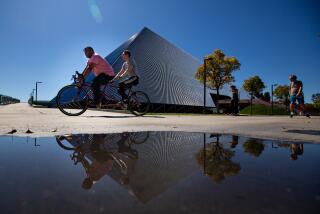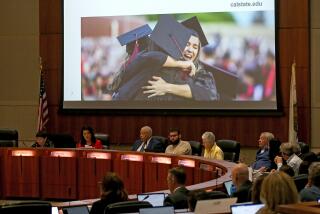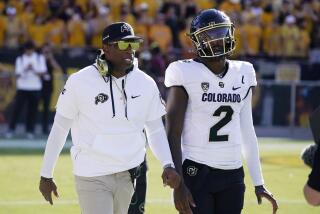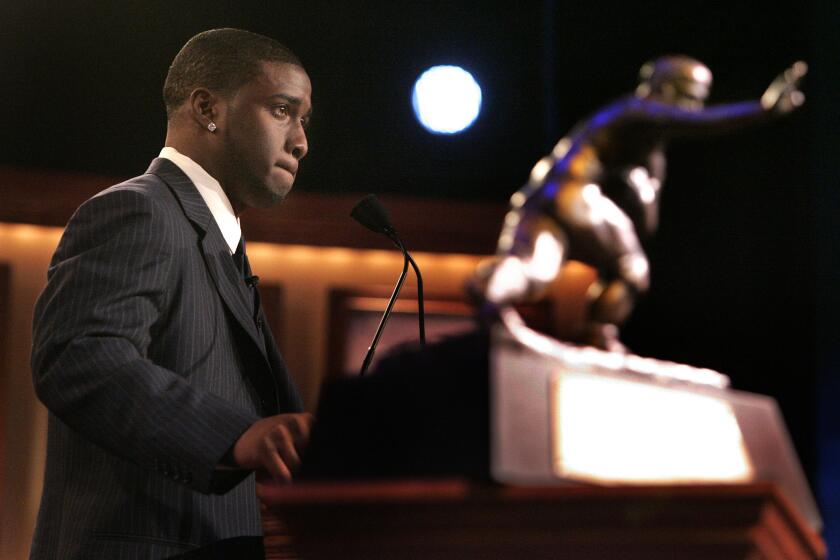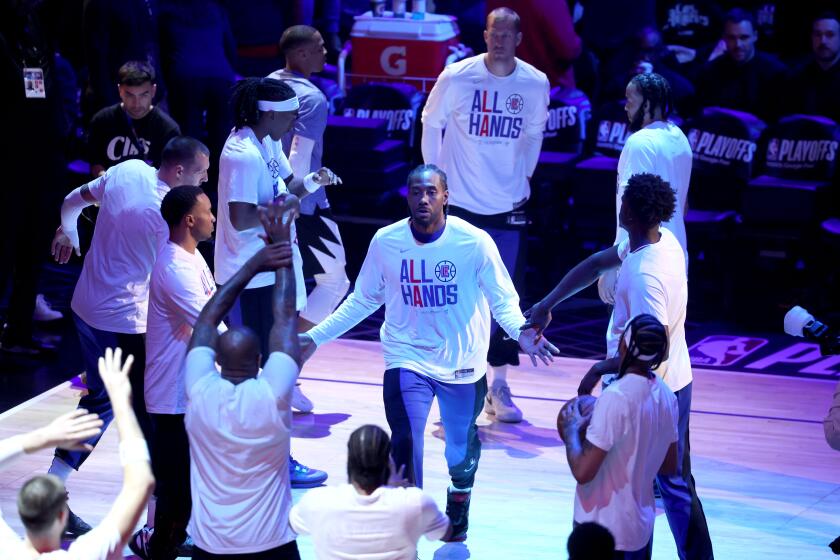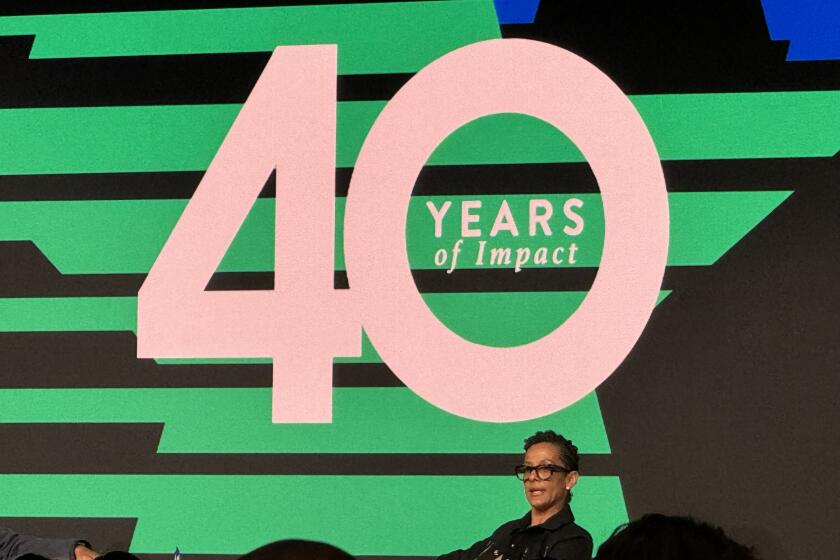CSUN penalized by NCAA for academic fraud
The NCAA found that a former Cal State Northridge director of basketball operations committed academic fraud involving 10 men’s team players, announcing Wednesday that it had placed CSUN on three years of probation, ordered it to vacate team records involving the players and imposed a five-year show-cause order on the staffer.
The NCAA also upheld the one-year postseason ban that CSUN imposed on itself last season, when the team went 10-20.
The NCAA did not name the staffer in its announcement, but a Los Angeles Times investigation found that it was Lior Schwartzberg, who left CSUN shortly after allegations of improprieties arose and is now the boys’ basketball coach at Valley Torah High.
The NCAA’s investigation found that the staffer completed online coursework for the players. Contacted Wednesday after the NCAA’s announcement, Schwartzberg denied wrongdoing.
“I deeply disagree with the decision and many of its facts,” he wrote in a text message, though he acknowledged he had not had “a moment to review the information.” He said additional inquiries should be addressed to his legal representation.
In its announcement, the NCAA said Schwartzberg told its investigators that he allowed students to complete online coursework on their own, using his computer.
NCAA investigators also questioned CSUN Coach Reggie Theus but did not find he had violated rules.
However, the NCAA report said CSUN President Dianne F. Harrison “personally admonished” Theus along with the university’s athletics director and the associate vice president for undergraduate studies. Brandon Martin is the athletics director; Elizabeth Adams is the vice president.
The case evolved from what Harrison described to the NCAA as a “dysfunctional” relationship between the athletic department and academic affairs.
The NCAA’s investigation report said CSUN had concerns about Schwartzberg’s activity as early as 2010, and the university “admitted that it failed to take adequate steps to investigate.”
The report said an academic tutor voiced concerns about the classwork of a player in 2013. The player’s grade in an online class seemed abnormally high given his knowledge of the material. When questioned, the player could not remember his username or password to access the course. He told the tutor he knew how to find out: Schwartzberg kept a list with the players’ login information.
In the fall of 2014, according to the NCAA, four student-athlete mentors and two staff members in the athletic department’s academic center also voiced concerns with players’ classwork. They said players had no knowledge of coursework that had been submitted, their grades for online classes were “significantly higher” than grades for in-person classes and the players were unable to describe basic information about the courses. The NCAA determined Schwartzberg had completed the work for them.
CSUN subsequently began an internal inquiry, hired attorney Carl Botterud to conduct an independent investigation and notified the NCAA of possible violations. It also “elected to withhold” several players thought to be involved.
Six players practiced with the team but did not play a minute that season. One played only in the team’s first two games.
The school reported to the NCAA that it placed Schwartzberg on administrative leave on Oct. 28, 2014. However, in response to a records request by The Times in October 2015, the university said it had no disciplinary records for Schwartzberg.
The NCAA’s investigation found the players’ academic accounts had been accessed and quizzes had been submitted from Schwartzberg’s computer. At times, there were logins from an IP address matching Schwartzberg’s parents’ house, more than 70 miles from CSUN’s campus.
Data collected by the NCAA found that Schwartzberg’s computer had been used for a total of 125 hours of classwork for 10 players.
The NCAA said Schwartzberg, appearing at a hearing, told an NCAA investigative panel “that the previous director of athletics and previous head men’s basketball coach told him to monitor student-athletes’ academics because the institution was concerned about its Academic Progress Rate.” He said he had logged on to the students’ accounts in that capacity.
The NCAA noted that CSUN had taken corrective action, including replacing its compliance director, establishing a group of 10 faculty members to oversee academics for the athletic department and limiting student-athletes to one online class per term.
Also, in January 2015, Harrison announced the postseason ban for a team that had a record of 5-10 at the time. It was a decision, she said, that “was not taken lightly.”
“Self-reporting violations and self-imposing sanctions was the right thing to do, and it put the university in position to move this program forward,” Harrison said in a statement Wednesday.
Said Theus: “All along, I’ve seen this incident as a learning opportunity for our student-athletes and a chance for the team to come together.”
CSUN’s basketball team has had other academic issues in the past.
In 2004, the NCAA penalized CSUN after the school self-reported that an assistant basketball coach had arranged to have two other assistant coaches alter the transcripts of a player to keep him eligible.
In 2011-12, after earning a subpar score on the annual Academic Progress Rate report, which measures how many of a school’s student-athletes remain enrolled and academically eligible over a four-year period, CSUN was banned from postseason play.
Follow Zach Helfand on Twitter @zhelfand
UPDATES:
12:30 p.m.: This article was updated with additional details of the NCAA’s findings and comments from Lior Schwartzberg and CSUN officials.
This article was originally published at 10:45 a.m.
More to Read
Get our high school sports newsletter
Prep Rally is devoted to the SoCal high school sports experience, bringing you scores, stories and a behind-the-scenes look at what makes prep sports so popular.
You may occasionally receive promotional content from the Los Angeles Times.
